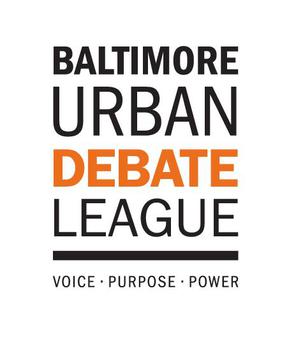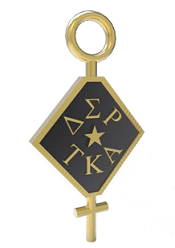
The National Speech and Debate Association (NSDA) is the largest interscholastic speech and debate organization serving middle school and high school students in the United States. It was formed as the National Forensic League in 1925 by Bruno Ernst Jacob.

Debate is a process that involves formal discourse, discussion, and oral addresses on a particular topic or collection of topics, often with a moderator and an audience. In a debate, arguments are put forward for opposing viewpoints. Historically, debates have occurred in public meetings, academic institutions, debate halls, coffeehouses, competitions, and legislative assemblies. Debates have also been conducted for educational and recreational purposes, usually associated with educational establishments and debating societies. These debates emphasize logical consistency, factual accuracy, and emotional appeal to an audience. Modern competitive debate also includes rules for participants to discuss and decide upon the framework of the debate.
Lincoln–Douglas debate is a type of one-on-one competitive debate practiced mainly in the United States at the high school level. It is sometimes also called values debate because the format traditionally places a heavy emphasis on logic, ethical values, and philosophy. The Lincoln–Douglas debate format is named for the 1858 Lincoln–Douglas debates between Abraham Lincoln and Stephen A. Douglas, because their debates focused on slavery and the morals, values, and logic behind it. LD debates are used by the National Speech and Debate Association (NSDA) competitions, and also widely used in related debate leagues such as the National Christian Forensics and Communication Association, the National Catholic Forensic League, the National Educational Debate Association, the Texas University Interscholastic League, Texas Forensic Association, Stoa USA and their affiliated regional organizations.
Policy debate is an American form of debate competition in which teams of two usually advocate for and against a resolution that typically calls for policy change by the United States federal government. It is also referred to as cross-examination debate because of the 3-minute questioning period following each constructive speech. Evidence presentation is a crucial part of policy debate. The main argument being debated during a round is to change or not change the status quo. When a team explains why their solvency is greater than the opposition's, they compare advantages. One team’s job is to argue that the resolution— the statement that we should make some specific change to a national or international problem —is a good idea. Affirmative teams generally present a plan as a proposal for implementation of the resolution. On the other hand, the Negative teams present arguments against the implementation of the resolution. In a single round of debate competition, each person gives two speeches. The first speech each person gives is called a “constructive” speech, because it is the speech when the first person of the team speaks positively, presenting the team's main idea without rebuttals that have not occurred, presents the basic arguments they will make throughout the debate. The second speech is called a “rebuttal”, because this is the speech where each person tries to rebut the arguments made by the other team, while using their own arguments to try to persuade the judge to vote for their team. The Affirmative has to persuade the judge to vote for the resolution, while the Negative has to persuade the judge the Negative's position is a better idea.
Congressional Debate is a competitive interscholastic high school debate event in the United States. The National Speech and Debate Association (NSDA), National Catholic Forensic League (NCFL) and many state associations and national invitational tournaments offer Congressional Debate as an event. Each organization and tournament offers its own rules, although the National Speech and Debate Association has championed standardization since 2007, when it began to ask its districts to use one of a number of procedures for qualification to its National Tournament.
Individual events in speech include public speaking, limited preparation, acting and interpretation are a part of forensics competitions. These events do not include the several different forms of debate offered by many tournaments. These events are called individual events because they tend to be done by one person unlike debate which often includes teams. This distinction however is not entirely accurate any more given the addition of duo interpretation events and forms of single person debate. Competitive speech competitions and debates comprise the area of forensics. Forensics leagues have a number of speech events, generally determined by geographical region or league preference. While there are several key events that have been around a long time, there are several experimental events around the country every year that can be limited to individual tournaments. Forensics leagues in the United States includes the National Speech and Debate Association, the National Christian Forensics and Communications Association, the American Forensics Association, the National Forensics Association, the Interstate Oratorical Association and Stoa USA. Organized competitions are held at the high-school and collegiate level. Outside of the rules for each event provided by the individual leagues, there are several cultural norms within each region that are not written into law but are almost always followed. Rules for time limits vary by event and by individual tournaments, but there are penalties in every event for exceeding the time limits though the severity of the penalty widely varies.
The National Parliamentary Debate Association (NPDA) is one of the two national intercollegiate parliamentary debate organizations in the United States. The other is the American Parliamentary Debate Association. Its membership is national with participating schools throughout the country. In 2015, NPDA was the largest debating organization in the United States with around 200-250 participating schools in any given year.
Public forum debate is a form of competitive debate where debaters use their evidence and impacts to outweigh the benefits and harms of the opposing side. The topics for public forum have to do with current-day events relating to public policy. Debaters work in pairs of two, and speakers alternate for every speech. It is primarily competed by middle and high school students, but college teams exist as well. Invented in the US, public forum is one of the most prominent American debate events, alongside Policy debate and Lincoln-Douglas debate; it is also practiced in China and India, and has been recently introduced to Romania. Individuals give short speeches that are interspersed with 3 minute "Crossfire" sections, questions and answers between opposed debaters. The winner is determined by a judge who also serves as a referee. The debate centers on advocating or rejecting a position, "resolve", or "resolution", which is usually a proposal of a potential solution to a current events issue. Public Forum is designed to be accessible to the average citizen.
Extemporaneous Speaking is a speech delivery style/speaking style, and a term that identifies a specific forensic competition. The competition is a speech event based on research and original analysis, done with a limited-preparation; in the United States those competitions are held for high school and college students. In a Extemporaneous Speech competition, enrolled participants prepare for thirty minutes on a question related to current events and then give a seven-minute speech responding to that question. The extemporaneous speaking delivery style, referred to as "off-the-cuff", is a type of delivery method for a public presentation, that was carefully prepared and practiced but not memorized.
An urban debate league (UDL) is a group of high school policy debate teams from urban high schools in the United States. UDLs are generally located in large cities throughout the United States and work predominantly with minority students.
Grand National Speech and Debate Tournament is the premier public speaking event of the National Catholic Forensic League. It is held annually in the United States over Memorial Day weekend. One can qualify for the tournament by performing sufficiently well in a local qualifying tournament.
Inter-collegiate policy debate is a form of speech competition involving two teams of two debaters from different colleges or universities based on a resolution phrased as something the United States federal government "should" do. Policy debate also exists as a high school activity, with a very similar format, but different leagues, tournaments, speech times, resolutions, and styles.

Pi Kappa Delta (ΠΚΔ) is an American honor society and organization for intercollegiate debaters, public speakers, and instructors teaching speech, debate, and oral communication. Established in 1913, the organization is the oldest debating society in the country. PKD influenced the formation of the National Forensic League, the emergence of national forensic tournaments, and the development of new formats for debate.

The Baltimore Urban Debate League, is an American, non profit, urban debate league that aims to educate and mentor inner city middle school and high school students in the Baltimore, Maryland area.
Dale Hample is an American argumentation and rhetorical scholar, associate professor at the University of Maryland. He has published many peer-reviewed journal articles, book chapters, and written one book and edited another.

The California High School Speech Association, or CHSSA, is a speech and debate organization offered to all schools in the state of California. It is the governing body for local and state speech and debate competitions in California, with higher-level competition under the auspices of the National Speech and Debate Association and the National Catholic Forensic League, and the Tournament of Champions. The league held its first championship tournament in 1958, and continues to hold championship tournaments every April.
Stoa USA, also referred to as Stoa, is a Christian homeschool forensics organization in the United States. It is one of the four major national high school forensics organizations: the others are the National Speech and Debate Association (NSDA), National Catholic Forensic League (NCFL), and the National Christian Forensics and Communications Association (NCFCA).

The American Forensic Association National Speech Tournament (AFA-NST) is an intercollegiate, individual events based forensics tournament held in conjunction with the first Saturday in April, beginning on the prior Friday and continuing through the subsequent Monday. In comparison to National Forensic Association Nationals, another prominent college-level individual events national tournament, the AFA-NST has significantly more stringent qualification procedures and a smaller, but more exclusive field of competition. The AFA-NST represents the culmination of the forensics season for many collegiate speech teams.

Delta Sigma Rho-Tau Kappa Alpha (ΔΣΡ-ΤΚΑ) was a collegiate honor society devoted to the promotion of public speaking (forensics). It formed from the merger of two similar organizations, Delta Sigma Rho and Tau Kappa Alpha, in 1963. The society became inactive in 2019.

Competitive debate, also known as forensics or speech and debate, is an activity in which two or more people take positions on an issue and are judged on how well they defend those positions. The activity has been present in academic spaces in the United States since the colonial period. The practice, an import from British education, began as in-class exercises in which students would present arguments to their classmates about the nature of rhetoric. Over time, the nature of those conversations began to shift towards philosophical questions and current events, with Yale University being the first to allow students to defend any position on a topic they believed in. In the late nineteenth century, student-led literary societies began to compete with each other academically and often engaged in debates against each other. In 1906, the first intercollegiate debate league, Delta Sigma Rho, was formed, followed by several others. Competitive debate expanded to the secondary school level in 1920 with the founding of the National Speech and Debate Association, which grew to over 300,000 members by 1969. Technological advances such as the accessibility of personal computers in the 1990s and 2000s has led to debate cases becoming more complex and to evidence being more accessible. Competitors and coaches have made efforts to reduce discrimination in the debate community by introducing new arguments and recruiting debaters from underprivileged communities.








